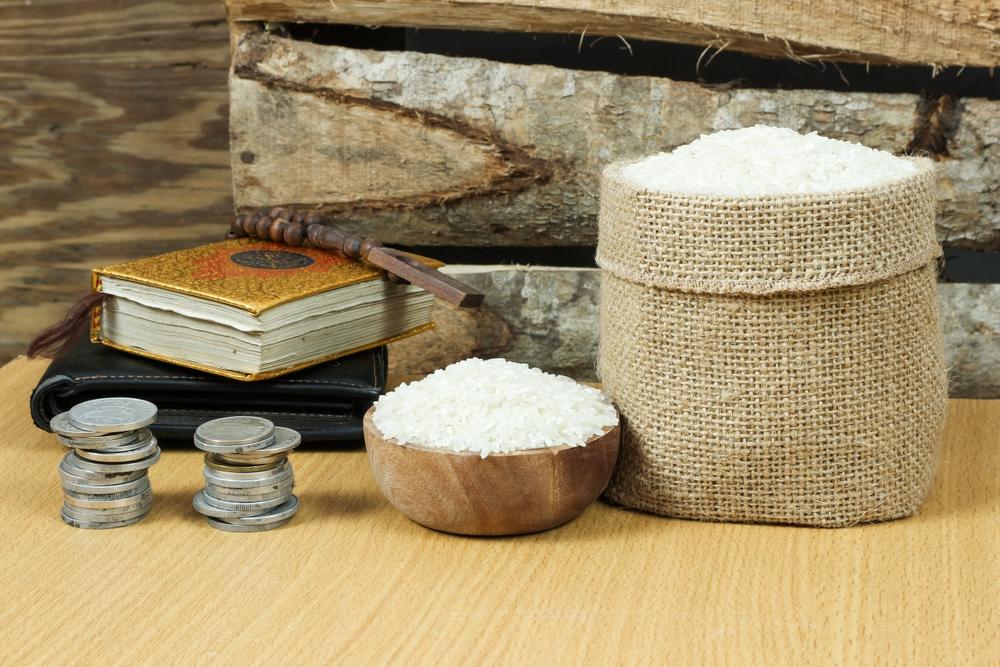
As a religion that’s very deeply rooted in charity, Islam has both compulsory and voluntary types of charity. Although Muslims don’t have the option to not participate in obligatory charity, they’re also encouraged to give to others off their own back. This is because everything someone has is a temporary gift from Allah (SWT), meaning it won’t be taken with them to the Hereafter. Therefore, anyone who is blessed enough to have wealth that exceeds their own needs is responsible for ensuring that they share their fortune with others. It’s vitally important that Muslims familiarise themselves with the suffering of those in need, as this is what encourages them to help pave the way toward a fairer existence. After all, everyone is equal in Allah’s (SWT) eyes.
So, Zakat vs Sadaqah – what makes them different?
Zakat is the third of the Five Pillars of Islam, so it goes without saying that it’s a compulsory type of charity. Every adult Muslim of sound mind with wealth that meets the Nisab threshold is eligible to pay Zakat. This is a yearly payment that’s required of you once you’ve held wealth that exceeds the Nisab threshold for a whole Islamic year. Zakat equates to 2.5% of your wealth, which is much more than just the money you have in the bank. The following also need to be considered:
Only select groups may receive Zakat donations, and these include the following:
In contrast, Sadaqah is a completely voluntary mode of charity, and it doesn’t necessarily have to be given in a monetary form. As a result, Sadaqah is among the most accessible types of charity, as anyone and everyone can engage with it no matter their financial status. Quite simply, Sadaqah is an act of kindness that’s done without the expectation of anything in return. So, it could be something as little as smiling at a stranger or something quite significant, like helping someone in need financially or otherwise.
Zakat is of the utmost importance, as it highlights the fact that Muslims shouldn’t be greedy and hoard their wealth. After all, it draws attention to the fact that wealth and worldly status are irrelevant to Allah (SWT), as everyone is considered human and deserving of good fortune in his eyes. So, when someone has wealth that exceeds their own needs, it’s their responsibility to share this wealth with others to level the playing field.
Sadaqah is vitally important as it predominantly revolves around kindness. Kindness for the sake of being kind benefits everyone, including the person who initiates it, the person receiving the kindness, and the wider community. What’s more, the Qur’an makes it clear that Allah’s (SWT) mercy grows with every act of kindness.
The limits of selfless good deeds are endless, and this is what Sadaqah is all about. Examples of Sadaqah include the following:
There are opposing opinions as to whether Zakat can be given as Sadaqah Jariyah. Some believe that Zakat can’t be accepted as Sadaqah Jariyah since Sadaqah Jariyah is voluntary and Zakat is compulsory. What’s more, Zakat can only be given to certain groups, which might not apply to Sadaqah Jariyah. Despite this, a number of charities have Sadaqah Jariyah projects that may be considered appropriate for Zakat.
The distinction between Zakat and Sadaqah is considerable. Although they’re both types of charity, Zakat is compulsory, and Sadaqah is voluntary. This is without mentioning that Zakat needs to come as a monetary donation in a set amount, while Sadaqah can be a monetary donation, but it doesn’t have to be. Sadaqah simply refers to a good deed, whereas Zakat has a number of rules. While Zakat/Sadaqah are very different, they both focus on benefitting others, making their shared mission clear.
Here at UKIM, we accept Zakat and Sadaqah donations alike. So, whether you’re working to fulfil your religious obligation or you simply wish to help someone in need, then we’re here to help. It’s our mission to distribute your donations to the people who need them most around the world. So, please give generously to save lives on a global scale.
Copyright © 2025 UKIM All Rights Reserved.
UK Registered Charity Since 1962
Charity Registration No. 250275


